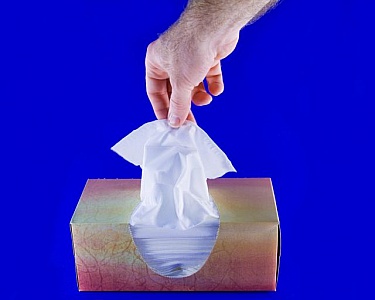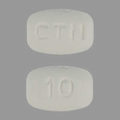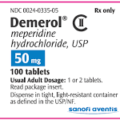
What is Cetirizine Hydrochloride and Pseudoephedrine Hydrochloride Pill
Cetirizine hydrochloride and Pseudoephedrine hydrochloride is a combination medication made up of an antihistamine extended-release tablet containing Cetirizine HCl 5 mg, and Pseudoephedrine HCl 120 mg. It is used as a nasal decongestant, for temporary relief of symptoms due to hay fever or other upper respiratory allergies, and itchy raised rashes on the skin known as hives which often occur with food or medication allergies. Generally, Cetirizine Hydrochloride and Pseudoephedrine Hydrochloride is a safe and effective drug that should not be mistaken for a 4h2 pill, but you should be aware of certain warnings and precautions when taking these drugs. Also, See CTN 10 Pill
What are Cetirizine hydrochloride and Pseudoephedrine hydrochloride used for?
If an individual has seasonal allergies like hay fever, consistent nasal congestion, or year-round symptoms, his or her doctor may prescribe cetirizine hydrochloride and pseudoephedrine hydrochloride. The Cetirizine hydrochloride and pseudoephedrine hydrochloride pill often help relieve these symptoms, but it generally does not prevent them. Cetirizine hydrochloride and pseudoephedrine hydrochloride help relieve mild to moderate allergy and flu symptoms, such as:
- hives
- sneezing
- runny nose
- itchy or watery eyes
- itchy throat or nose
Cetirizine Hydrochloride and Pseudoephedrine Hydrochloride Dosage
Adults and children over 12 years: One tablet every 12 hours and not more than 2 tablets in a single day
Talk to your doctor about dosage for people who:
- are 2 to 6 years old
- are older than 65 years
- have liver or kidney disease
Side Effects Cetirizine hydrochloride and Pseudoephedrine hydrochloride
Cetirizine hydrochloride and Pseudoephedrine hydrochloride medication are less likely to cause side effects such as dangerous drowsiness, dry mouth, blurred vision, and overheating. However, cetirizine hydrochloride and pseudoephedrine hydrochloride can cause adverse effects, such as:
- Weakness, tremors (uncontrolled shaking)
- Drowsiness
- Excessive tiredness weakness, tremors (uncontrolled shaking)
- Dry mouth
- Extreme feelings of fear or confusion
- Diarrhea and constipation
- Fast, pounding, or uneven heartbeat
- Vomiting
- Sleep problems (insomnia)
- Severe restless feeling, hyperactivity
- Increased blood pressure
Precautions and warnings when using Cetirizine Hydrochloride and Pseudoephedrine Hydrochloride
Be careful when driving or using machinery
Be cautious when using this medication, do not drive your car or use machinery until you know for sure how your body will respond to the cetirizine hydrochloride and pseudoephedrine hydrochloride pill. Read Can Ctn 10 Get You High
Check the ingredients
Do not use cetirizine hydrochloride and pseudoephedrine hydrochloride if you are allergic to any antihistamine that contains hydroxyzine or if you had previously reacted to any of its ingredients. In addition, do not use this product if you are taking any medications for depression, psychiatric, or emotional conditions, or Parkinson’s disease containing monoamine oxidase inhibitor (MAOI). Do not use the cetirizine hydrochloride and pseudoephedrine hydrochloride medication when taking tranquilizers or sedatives.
Do not use during pregnancy and breastfeeding
Talk to your doctor before you take the cetirizine hydrochloride and pseudoephedrine hydrochloride pill if you are pregnant or planning to become pregnant. It is also not recommended if you breastfeed your child. This is because the drug can be excreted into breast milk. Also See Terramicina -Uses, Dosage & Side effects
Ask a doctor before Using Cetirizine hydrochloride and Pseudoephedrine hydrochloride
- If you have a heart disease
- If you have been diagnosed with thyroid disease
- If you are diabetic
- If you have been diagnosed with glaucoma
- If you have high blood pressure
- If you have trouble urinating due to an enlarged prostate gland
- If you have liver or kidney disease.
When using cetirizine hydrochloride and pseudoephedrine hydrochloride
- Stick to the prescribed dosage, do not use more than directed
- Note that certain levels of drowsiness may occur
- Avoid alcoholic drinks and beverages during the period of cetirizine hydrochloride and pseudoephedrine hydrochloride use
When to Stop cetirizine hydrochloride and pseudoephedrine hydrochloride use
- Immediately an allergic reaction to Cetirizine hydrochloride and pseudoephedrine hydrochloride surface, seek medical help right away.
- As soon as you get nervous, dizzy, or sleepless
- If symptoms do not improve within 7 days or are accompanied by fever or other symptoms
What is the Brand Name for Cetirizine hydrochloride and pseudoephedrine hydrochloride?
The brand name for Cetirizine hydrochloride and pseudoephedrine hydrochloride is: Zyrtec-D
Keep All medicines out of reach of children.
CLICK HERE TO DOWNLOAD How to Overcome Addiction PDF








2 Comments